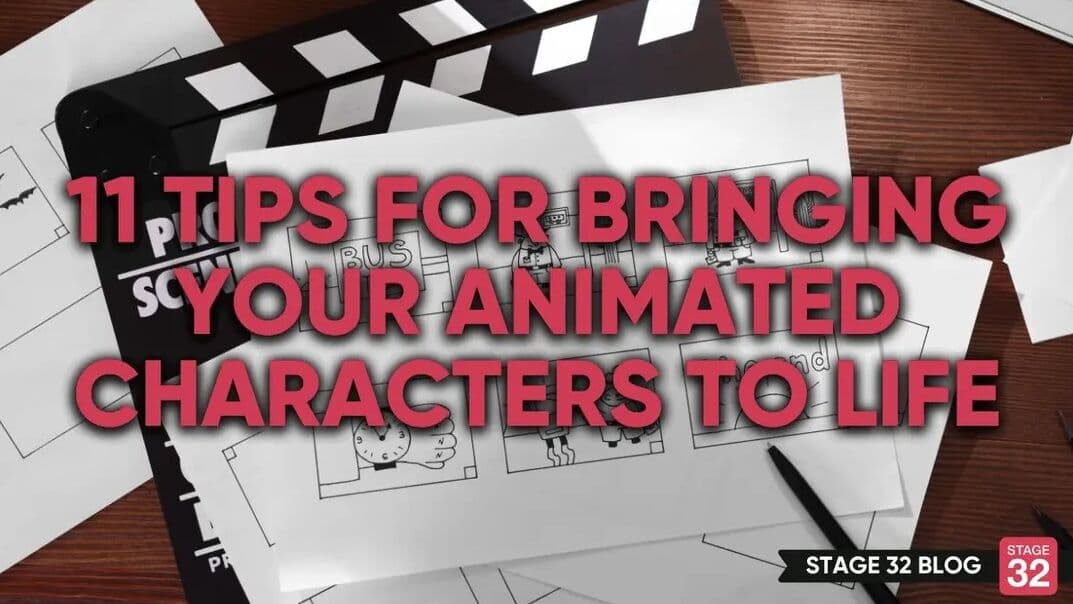Do You Need a Writing Coach? 5 Reasons To Help You Decide

Do You Need a Writing Coach? 5 Reasons To Help You Decide

If you read the title of this post and scoffed as you begin reading this very sentence thinking, “Pfft. A writing coach. DUMB. Why on earth would I waste my time with a writing coach?”
I get it. I used to think the same thing.
I mean, why, when there are so many resources out there (books, webinars, online classes, masterminds, workshops), would you need to fork over a couple grand for a writing coach?
For the record, I’m not here to convince you that working with a writing coach will sell your script or put you in front of the big dogs. What I am here to do is to share with you the benefits of working with someone who has been there, done that, and can talk to you in real time.
Ultimately, you’ll choose the process that works best for you. (As you should.) Having said that, let’s dig into the benefits of working with a scriptwriting coach.
Benefit #1 – They Know Their Sh*t
I have a scriptwriting coach and I’m pretty sure I’ll have one for a very long time. See, I was the writer who started out in front of the TV, timing the length of each act in my favorite show, then noting how many story lines ran through it. I would then take that knowledge to my keyboard and start typing away madly.
Eventually I bought books and studied them, highlighting the nuggets. I watched webinars. I took online courses. I watched more TV, read more books, watched more webinars.
While these tools are all very valuable, I have found that working one-on-one with someone else is exactly what I needed.
With a coach, I can ask detailed questions. Have an extensive conversation. I can vent my frustrations or turn those frustrations into art, but best of all, I can leave the coaching session feeling fulfilled, understood and more eager to conquer my script than I did an hour before.
A good writing coach knows his stuff. He understands the importance of theme and character arcs and the story engine that drives each episode and when your dialogue falls short or the overall theme is weaker than your third cup of tea, a good coach will point it out to you and help you pull it together.
Benefit #2 – They Know What Executives Want
Working with someone who works directly with producers and directors really comes in handy when you have questions about any part of the scriptwriting process. From writing and pitching, to having a script optioned, your coach will more than likely have the answers.
I love this about my coach. I can ask her intimate questions about her own process and get answers I might not get from a book or webinar. (She just sold a script to New Line Cinema with an actor of note at the helm to produce it.) It helps me have more than a textbook understanding of what really happens out there after a script is optioned.
Benefit #3 – They Read Every Word You Write
I took a five-week online course when I started working on the bible for my pilot. Because it was all email based, the students never got to actually speak to the instructor (who is an active producer on an HBO drama), nor did we get to share our actual pilot with him. We basically read his written lesson, did the work and then submitted what we had. After a week, we got notes. That was it.
I think the course had value, but it would have had so much more value if the instructor was able to read the pilot in addition to the bible. Whether you’re working on a treatment for a screenplay, a bible for a pilot, or a written pitch to submit here on Stage 32, every piece works in tandem. A coach will read every word you write.
Benefit #4 They See What You Can’t
I think, by far, this is the greatest benefit. I can’t tell you how many times I’ll pop on Zoom with my coach and she’ll say something like, “Oh my GOD, the theme of trial and struggle with each of your characters is uh-may-zing and I just love how you have it show up in the scene with the fish, especially. I mean, fish represent struggle. How you weaved that together is – BAM – spot on!”
Okay, I had NO idea that fish represented struggle, but YAY FOR ME!!
Because she saw something I wasn’t fully conditioned to seeing yet, I was able to understand how to continue to weave theme throughout my story. I’ve read about this before and I’ve been told this before. I understand it needs to be prevalent, but there is something about hearing it directly from your coach (over and over again) that really helps drive the point home.
Benefit #5 They Know the Lingo
I remember the first time someone asked me if I had a bible ready for one of my ideas.
Being the literal fool I am, I thought he was uber religious and suggesting I keep a bible next to me while I was writing.
Or the time I was at a television festival talking to a producer and he said, “I just need to line up my DOP.”
(Oh boy…)
I leaned to the woman next to me and whispered, “What’s a DOP?”
“Director of Photography,” she said with a grin.
Granted, you don’t need to know every drop of lingo as you dive into your writing adventure, but it sure does help when you can bounce things off someone in the know.
Again, I’m not here to convince you. We all write differently and process information differently. I’ve just noticed that working one-on-one with a seasoned scriptwriter has been the edge I needed. Truly. It may be different for you.
Finally, this industry changes rapidly. For some, that’s good news. Jacob Krueger of the Jacob Krueger Studio in New York (co-writer of The Matthew Shepard Story) told attendees in a webinar recently, “This is the time for original pilots. For the past two years, that’s what executives and producers are looking for. So write them.”
Being a part of a studio with seasoned writers and showrunners also gives me an advantage because their instructors and coaches are out on the front lines. They know the deal.
No matter how you choose this path, let it be with confidence. Do what works for you. And never stop writing.

About the Author

Joleene DesRosiers
Screenwriter, Actor, Producer
Joleene DesRosiers is a former television reporter and anchor turned indie screenwriter and director/producer at a PBS affiliate television station in Northern New York/Canada.This role allows her to write, produce, and direct regional and national documentaries, docs-series, and other series produc...







